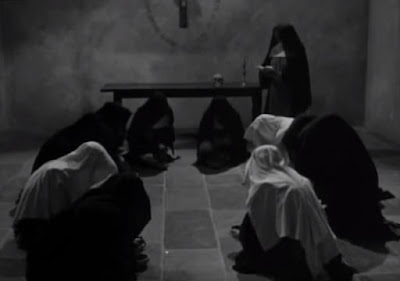"If you call that interfering, there's something wrong with your Funk & Wagnalls." That was my favorite line from an episode of Buck Rogers last week. The clip is at the end of the post.
Some amusing SF/Fantasy book titles that I would like to see:
Death of a Talisman
To Clone a Mockingbird
Of Humanoid Bondage
Gorn with the Wind
Book Reviews
First, the book for which I didn't have the stickety-to-itey to complete. Life Reset by Shemer Kuznits
As I did not finish the book, I won't give a standard review. I got the book for free through Prime. The book is the tale of an online gamer who actually makes his living via his character's online income. The character is some big boss head of a guild or something. Treachery sends the character to an unknown region of the game, transformed into a lowly goblin. Additionally, the player himself soon becomes trapped in the online game. The story of the lowly goblin character's rise to power (and several deaths along the way) is fairly interesting. What was not interesting, besides the lame attempts at humor, was the constant reviewing of the character's game stats. It only got worse when the character became a small boss with a village to run etc. With that development, the stat reviews included not only the character, but many of the villagers as well. I couldn't have cared less about the game mechanics and stats. There was a decent story being told, but it became buried beneath the frequent stat reviews and the lame exercises for increasing the stats. The story just wasn't good enough to make me endure the stuff that annoyed me. I rate the book: Abandon Ship--the story sinks beneath a deluge of boring stats and game info. I think the criticism by two-star reviewers at the big river site where the book is available are the most useful reviews.
I see that I used "lame" and "interesting" twice each in that paragraph. That makes for lame and uninteresting writing.
I did finish Django Wexler's The Thousand Names.
General Thoughts: I found this book for a couple bucks at the local used bookstore. It was a research project for me into the realms of flintlock fantasy. If it hadn't been a research project, I wouldn't have read past the first few pages because the author drops several f-bombs in that time; that's normally a deal-breaker for me. Fortunately, there were entire chapters without that kind of profanity. Near the end of the book when things got fast and furious again, the f-bomb became more frequent. That feature alone turned me off from the book. As for the other elements, the writing isn't bad. I became interested in the story and in the characters. The book is dreadfully long--over 600 pages.
Story in a nutshell: A small contingent of colonial soldiers face a religious uprising by the native population in a coastal desert setting. Reinforcements arrive with a mysterious colonel at their head. They bring their flintlocks and cannon on the road to take the fight to the enemy who outnumber them by at least 10 to 1. The colonel has an additional item on his to-do list that he hasn't shared with his troops. A spy in the midst of the colonials also has a special mission. When the colonel's mission and the spy's mission intersect with a mutiny among the troops, and the secrets of the old religion of the desert, the magic finally becomes manifest.
Do I recommend it? Reluctantly, no--maybe--it depends. There's a lot going on here for so little that is accomplished. The book really seems like an extravagant prologue to the story that promises to follow. I hated the profanity. I think that a better author would have made up different words in his world to replace the profanity. I did get caught up in the story, but it went on too long. When the magic finally appeared (it is fantasy), I didn't love it. We trudged across the desert fighting a few battles, suffering many casualties and enduring great difficulties, but when we arrived at the climax and the big reveal, the payoff for our troubles, it just tasted bad. One aspect of the big reveal was no surprise; I kept expecting it, and it happened. That's not necessarily bad; it makes me feel good to figure out something before it's revealed--when I have to think about it. The question or mystery dealt with who among the colonials possessed magical powers. In this case, the answer was slipped in via a minor incident about halfway through the book, if I remember correctly. The other part of the magic reveal was not obvious, yet foreseeable. One aspect that appealed to me, as a Napoleonic nut myself, was that of the battles. I did like that they were well-described--except the most important one. The final battle between the colonials and the native army didn't get the same level of description as the other battles. After the trek though the desert and the various fights which built up to this clash for the very survival of the colonials, I expected more. Instead, that battle received short shrift. I wanted a detailed account of that one; perhaps the potential logical/logistical problems prevented a more full description. Anyway, I rate it: A Long Slog to the Tainted Oasis--through desert, battles, and mutiny, to the oasis where the water is not cool and refreshing, but strange and unpleasant. That said, I'm really considering reading the next one in the series, and I suppose that's what the author wanted to accomplish.
Maybe next time I'll discuss these topics:
A class action suit about Craftsman warmachines
Broadside: Emerging Empires Collide




















